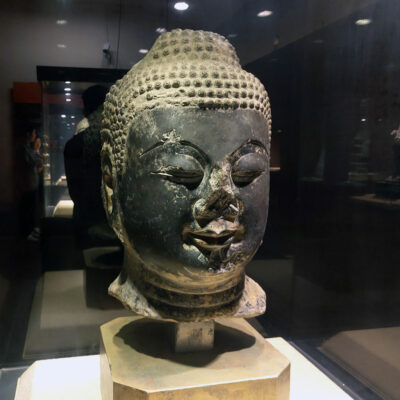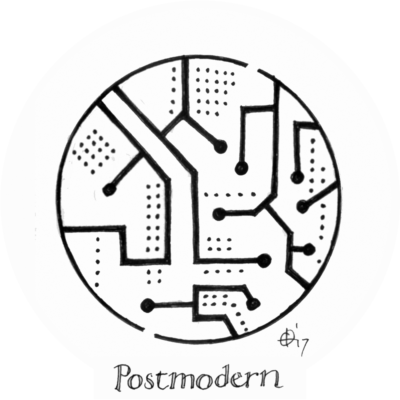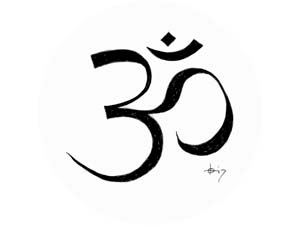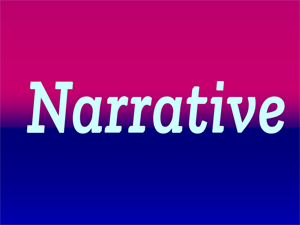Nivedita Yohana

Wijsheidsweb, July 2, 2017
Being born and raised in India, I have noticed that the word ‘Karma’ increasingly features in common parlance these days, diffused into the noises in the head, of the traffic, people, birds and within the bustling life of my native country. As any other teenager, I too started to use this lingo without really grasping the depths of this profound word until my own life started unravelling like an onion peel. So, the key question has to be is: when and who coined the concept of ‘Karma’? How did they come to the awareness that there is a supreme invisible force beyond our grasp acting here?
Karma, also refers to a conceptual principle that originated in India, often descriptively called the principle of karma, sometimes as the karma theory or the law of karma. In the context of theory, karma is intricate and tricky to describe. Various schools of Indologists derive different definitions for the karma concept from ancient Indian texts; their definition invariably involves some combination of: (1) causality that may be ethical or non-ethical; (2) ethicization, an understanding/acceptance that good or bad actions have consequences; and (3) the notion of rebirth.
Other Indologists include in the definition of karma theory that which explains the present circumstances of an individual with reference to his or her actions in past. These actions may be those in a person’s present life — or, in some schools of Indian traditions, possible actions in their past lives; furthermore, any consequences may impact in a current life, or indeed any future life of any one individual soul. The law of karma, therefore, operating independently of any deity or any process of divine judgment. Though I myself believe you can escape this circle of life and attain moksha through divine intervention.
Difficulty in arriving at a satisfactory definition of karma arises because of the diversity of views among the schools of Hinduism. Some, for example, consider karma and rebirth both inextricably interlinked and simultaneously essential; some consider karma — but not rebirth essential, whilst others conclude karma and rebirth to be merely a flawed fiction. Buddhism and Jainism have their own karma precepts. Thus, karma has not one, but multiple definitions and different meanings. It is a concept whose meaning, importance and scope vary between Hinduism, Buddhism, Jainism and other traditions that originated in India, as well as various schools in each of these traditions.
O’Flaherty in his book Karma and Rebirth in Classical Indian Traditions claims that, there is an ongoing debate regarding whether karma is a theory, a model, a paradigm, a metaphor, or a metaphysical stance. However, it is clear that Karma as a concept, across different Indian religious traditions, shares certain common themes: causality, ethicization and rebirth.
Life thus far has blessed me with enough experience to realise that there is a higher force than Karma — namely: ‘free will’. According to my understanding to date Karma can be defined as our predisposition to certain tendencies, as opposed to the commonly voiced illusion that we are no more than bound and helpless prisoners of our fate or karmic energies (if it were so, there would not have been any point of getting out of the bed at all!) Rather we are a bundle of energies — both the bad ones and the good ones and point of our life is to be like a sieve — sieving out the bad and this is possible only through developing increased awareness.
Awareness
Being mindfully aware of your actions, thoughts, events, people you meet can unlock those rusty doors of perception, accepting that everything happens for a reason to better enable us to confront our shortcomings and to better align with our life’s true purpose. Taking the time to notice how the energy that created our souls is forever whispering to us in a voice best defined as ‘intuition’ A precious and powerful voice that is too often drowned out by the noises of other’s judgements, our own and other’s thoughts: prejudices, conditioning, childhood impressions, vulnerabilities, peer group influences; indeed, our own inner void and all the defences that we build to shelter our fragile false ego.
Chastening to consider that it is estimated that anyone conscious individual has between 20,000 to 80,000 thoughts a day!
As Eckhart Tolle says in Stillness Speaks:
Stillness is where creativity and solutions to problems are found.
It is therefore so, so important for us to slow down and for example to listen to the gentle breeze or a roaring wind or see the beautiful sunshine or feel the texture of the chair or the rug you are sitting on or hear the sound of the leaves gently rustling. Or hear the water drops or see the ripples in a pond or see a cat basking in the sun and wonder what’s going on in its mind.
No time anymore for these precious, simple and nourishing moments perhaps?
With the onslaught of excessive stimuli, whether it is cell phones or Twitter or Instagram constantly buzzing with selfies, people telling stories of how they woke up, how much they enjoyed in a concert or at a party or with friends, how sad they are, how bored they are! Their most intimate moments with their partners or with their pets, their vacation, selfies in the plane, in front of the airport (to prove that they were actually there.) Updates on what they are eating for breakfast, lunch and dinner. The self-absorbed and tedious list is potentially as endless as the stars in the cosmos!
One common denominator here, which is blazingly obvious, is the truly desperate and continuous need for validation. People want to be heard and to be validated from their family, friends, colleagues, acquaintances and even from absolute strangers! Admittedly, to some extent, a natural instinct — but how about paying attention to people next to us in the physical world? (as opposed to the virtual world…) What we run the risk of doing here is failing to pay proper attention to the people and surroundings most immediately around us. Principally our friends, family, lovers, colleagues, shop assistants in the supermarket when you are grocery shopping, a child playing in the playground, birds singing or perched on a tree, people at the bus stop — some anxious, some relaxed, some dreamy, some engrossed with their partners, a handsome man or woman looking at you, or a person simply giving you a radiant smile.
Technology taking over…
We are so engrossed and enamoured by the colourful stimuli on our cell phones that we become completely oblivious to what is happening around us. Notice how many youngsters especially seem to sleepwalk through their lives, as zombies with head bent down staring at their cell phones so intently, as if avoiding life all around them and taking a deep personal refuge in their handheld devices.
Don’t get me wrong, I am not an old sceptical cynical hag! As a child of the 1980s, I am not against the use of cell phones or any other technology. On the contrary, I am ever grateful and delightfully relieved for the presence of science and technology in our lives, as it can seamlessly connect us with people/ family/ friends living right across the globe.
However, if we allow this virtual interaction to become our top priority and choose to cling to the buzzing, cold electronic device in our hands, totally oblivious to the person sitting to us, we are definitely missing the point of why we are here with the precious opportunity of life itself. Instead constantly lost in the vast myriad of electronic sensations and drifting away from the natural sensations that we are drowning out our inner voice. So that when challenging times strikes us down, we are rudely shaken from our stupor, conveniently blaming life, fate and everything around us. Oh! If only we had taken a moment to be still and listen to what our intuition was telling us all the time.
Intuition vs instinct

Consequently, the next key question arises: What exactly is intuition or instinct? Where does it come from? Do other animals or plants have this instinct or is it something peculiar to human beings? This instinct must come from somewhere, mustn’t it? I would like to think it is coming from the same energy that created life. This creative life force is rigged to favour us (why would it be otherwise?) it is just that we need to better tap into this energy and, in this respect, make better use of our free will. As Joe Dispenza helpfully clarifies in You Are the Placebo: Making Your Mind Matter
“From a quantum perspective, if you observed yourself in a particular new future that was different from your past, expected that reality to occur, and then emotionally embraced the outcome, you’d be — for a moment — living in that future reality, and you’d be conditioning your body to believe it was in that future in the present moment. So the quantum model, which states that all possibilities exist in this moment, gives us permission to choose a new future and observe it into reality. And because the entire universe is made of atoms, with more than 99 percent of an atom being energy or possibility, that means that there’s a lot of potentials out there that you and I might be missing. However, this also means that you create by default as well. If you, as the quantum observer, look at your life from the same level of mind every day, then according to the quantum model of reality, you’re causing infinite possibilities to collapse into the same patterns of information day in and day out. Those patterns, which you call your life, never change, so they never allow you to effect change.”
What we can infer from this profound observation that we, as individuals, are the cauldron in which this potential energy and energies can interact. Just like the Paulo Coelho in The Alchemist — by letting Santiago hear the shell he is actually encouraging the boy to listen to himself — to our very origin, to our own being… Just as when we put the shell to our ears we hear the sound of the sea.
When we do listen properly to our being, when we begin to align our dreams, our aspiration, our being with our actions and indeed inner humility. Then miracles can happen! The word ‘miracle’ defined by the Oxford Dictionary as: “An extraordinary and welcome event that is not explicable by natural or scientific laws and is therefore attributed to a divine agency.”
So perhaps karma is best understood as the energy patterns that make up for our predisposition which can be altered by becoming more aware of our individual tendencies and then fine tuning it where necessary. This process is not as simple as it seems, as one may have to go through many trials, tribulations, challenges and real testing times before actually coming truly face to face often something of a shock to our pre- sustained false ego. This being the core journey of the human spirit that helps bring us closer to a fuller awareness of the ‘Truth’ — the essential quality we require in order to evolve spiritually and intellectually. This journey can, of course, be ridden with failures, rejection, wrong decisions, and frustration — but if we keep walking faithfully on despite this, the door to infinite abundance is bound one day to open for us.
As Einstein once said, “It is survival of the fittest” so the fittest ones believe, and dream of a better tomorrow and Marcus Aurelius helps us further here with his insight that:
“True understanding is to see the events of life in this way: “You are here for my benefit, though rumour paints you otherwise.” And everything is turned to one’s advantage when he greets a situation like this: You are the very thing I was looking for. Truly whatever arises in life is the right material to bring about your growth and the growth of those around you. This, in a word, is art — and this art called “life” is a practice suitable to both men and gods. Everything contains some special purpose and a hidden blessing; what then could be strange or arduous when all of life is here to greet you like an old and faithful friend?”
These powerful words from this classically wise Roman luminary really did reconfirm my life. Finally filling it with hope and belief, allowing me to properly appreciate how every moment in our life has indeed a special purpose and a blessing. Of course, these moments can be fleeting, but every special fleeting moment in our lives carries with its depth and great intensity that endures.
Stillness
And, after all, if you are reading this blog post, it definitely means that you are alive, eager and reading from the comfort of your own personal space. How lucky are you! Not many have the comfort of a laptop or a phone or a shelter, to begin with…
So, instead of complaining how boring or frustrating our life is, instead we need to ask ourselves: “what then is the lesson?” Understanding that the blessing for us comes in the form of wisdom hidden within that lesson.
Realising that if we are constant and mindful enough to treat life as: “our old and faithful friend” it will too.
And if we are grateful, life will give us more to be grateful about. The opposite being true as well!
All we need to do is to listen intently, remembering: We are energy created by a creative and divine energy which is constantly protecting us, wanting us to succeed and just waiting ever patiently for us to get in touch with our own origin and to unleash the vast potentials with which we are magically endowed.
So, stay calm, listen to the stillness and start to truly blossom!











